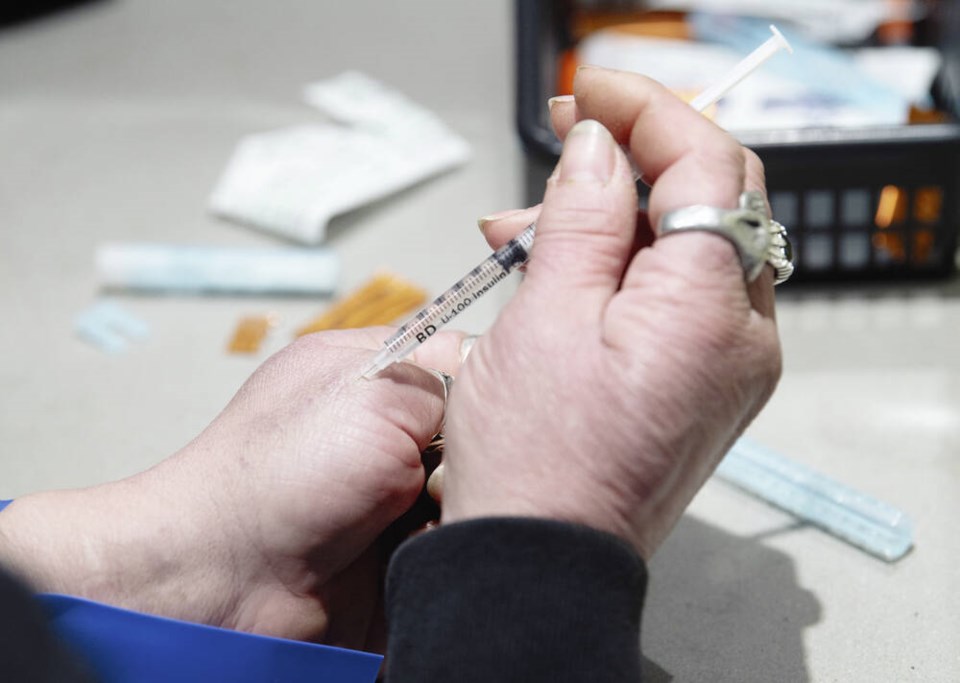In their book Zombie Ideas: Why Failed Policy Ideas Persist, political scientists Brainard Guy Peters and Maximilian Lennart Nagel introduce the concept of “zombie ideas.” Zombie ideas are “policy ideas that, although largely unproven in practice, tend to survive and to be adopted again and again.”
As Peters and Nagel point out, zombie ideas are not just bad policy ideas. They are bad policy ideas that keep coming back despite being ineffective and counterproductive; policy ideas that persist in the face of lacking evidence and rationale.
Using involuntary hospitalization to address the overdose crisis in British Columbia is a zombie idea. For more than two years, the NDP has been keeping this policy idea alive. It has done so in the face of indisputable evidence that forcefully detaining people who overdose will cause significant harms, increase barriers to health care, and deter people from seeking help after an overdose.
This is in addition to the potential rights violations that people who are involuntarily hospitalized in British Columbia would likely experience, not least because our province — unlike other provinces and territories — also deprives them of their right to consent to or refuse treatment.
Involuntary hospitalization keeps coming back not because it is a good idea or because it can actually save lives. In fact, clinicians have explicitly stated that involuntary hospitalization puts people at higher risk of overdosing. The B.C. Coroner has warned of this leading to more deaths.
Why this zombie idea keeps coming back is unclear.
Every time the NDP introduces the idea of involuntary hospitalization — first by John Horgan, then by Judy Darcy when she introduced Bill 22 for youth who overdose, and now by David Eby on the campaign trail — it is met with fierce opposition and called out for lacking scientific, ethical, legal and clinical evidence.
The research just does not support this policy idea. In a brief summarizing research on detention-based services for people who use drugs, the B.C. Centre for Disease Control concludes: “There is a lack of evidence in support of compulsory substance use treatment, including involuntary hospitalization for people who use drugs, and evidence that compulsory treatment is associated with increased risks of harms to marginalized populations.”
From an ethics perspective, a wide range of stakeholders have been vocal about the ineffectiveness and dangerousness of turning to coercive approaches such as involuntary hospitalization to solve an overdose crisis caused by a toxic drug supply — a product of policies and systems that criminalize, punish and stigmatize people who use drugs. Researchers, Indigenous leaders, clinicians, advocates and people/families with lived and living experience have all argued against these approaches.
Lawyers have also condemned the use of involuntary hospitalization as part of the policy response to the overdose crisis. According to the B.C. Civil Liberties Association, this approach would violate Charter rights.
In addition, as Pivot Legal Society points out, it would run counter to “Article 9 of the International Covenant on Civil and Political Rights (1966) and Articles 14 and 25 of the Convention on the Rights of Persons with Disabilities (CRPD).”
Finally, it will only exacerbate B.C.’s overreliance on involuntary health-care mechanisms — a serious human rights issue documented by advocates such as Health Justice and the Representative for Children and Youth.
Clinicians have also opposed involuntary hospitalization, citing the absence of evidence as well as its ineffectiveness and potential to cause harm.
As Dr. Paxton Bach, co-medical director at the B.C. Centre for Substance Use, explains: “The bottom line is we cannot force treatment on people. That’s not an effective strategy. We need to actually do the hard work of building a system that provides the care people are actually seeking.”
According to Peters and Nagel, zombie ideas persist for three reasons.
Policy experts keep them alive, most likely at the demand of politicians who, in turn, use zombie ideas to win elections and preserve the status quo.
Political organizations continue to use them because they reflect policy preferences and are self-serving. They are passed on to new leaders, making change unlikely.
Most importantly, they find a receptive audience.
Without social support, zombie ideas cannot subsist.
There is no doubt that the NDP, as a political organization, is committed to involuntary hospitalization. Eby has made it clear now that, if elected, he will uphold this commitment despite “knowing better,” as BCCLA points out.
Rather than keeping a zombie idea alive, the NDP should instead focus on keeping British Columbians alive. They can do this by endorsing bold, evidence-based policies that uphold the rights, dignity and expertise of people who use drugs.
>>> To comment on this article, write a letter to the editor: [email protected]



